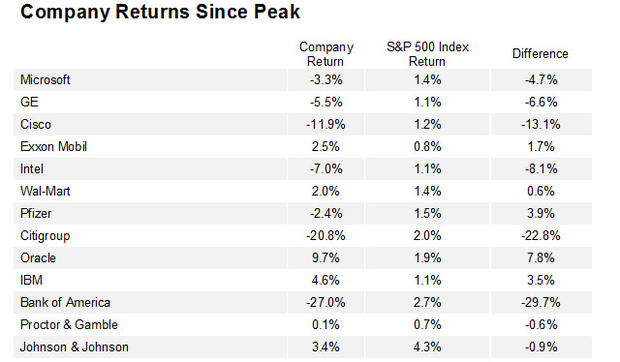Investing at max company value doesn't pay
(MoneyWatch) A company reaching new highs in value may make for great headlines, but it doesn't guarantee great returns for its investors.
On August 20, Apple (AAPL) became the most valuable company of all time. The company's shares rose that day to push its market capitalization up to $619 billion. The previous historical record belonged to Microsoft (MSFT), whose market cap reached $616.3 billion back in 1999.
The Big Picture blog had a chart showing the peak market capitalizations of some other major companies as a basis for comparison. Kevin Grogan, my "Right Financial Plan" co-author, looked at the stock returns of these companies compared to the S&P 500. The starting point for each comparison is the closest month to the date of each company's peak market cap, and the returns are annualized and run through July 31.
A couple of things in this table jump out. First, a company having a large market cap doesn't mean that it's safe, nor that it'll have great returns in the future. All it tells you is that it had great returns in the past.
Second, the table does a good job of illustrating the risk of holding a concentrated stock position. From October 2006 to July 2012, the S&P 500 returned almost 3 percent per year, while at the same time Bank of America (BAC) lost 27 percent per year.
Prudent investors don't speculate by holding concentrated stock positions. The winning strategy is to take compensated risks; the market doesn't compensate you for taking company-specific risks that can be diversified away.
Image courtesy of taxbrackets.org
